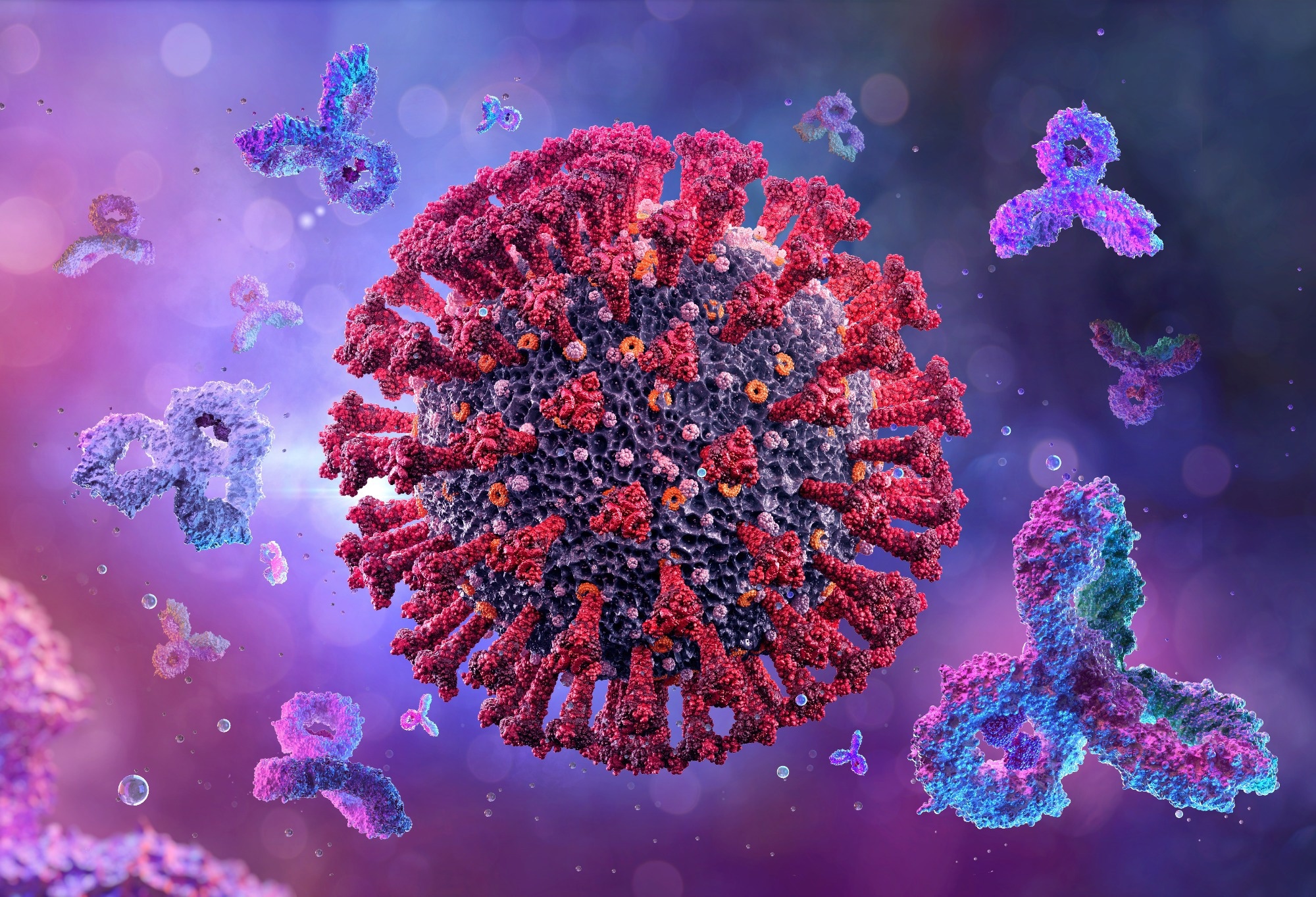In a recent study published in the Lancet, researchers evaluated the antibody neutralization sensitivity of the severe acute respiratory syndrome coronavirus 2 (SARS-CoV-2) Omicron BA.2.75 subvariant.
 Correspondance: Neutralisation sensitivity of the SARS-CoV-2 omicron BA.2.75 sublineage. Image Credit: Corona Borealis Studio/ Shutterstock
Correspondance: Neutralisation sensitivity of the SARS-CoV-2 omicron BA.2.75 sublineage. Image Credit: Corona Borealis Studio/ Shutterstock
Background
Omicron BA.2.75 sublineage was responsible for over 30% of sequenced SARS-CoV-2 infections in India by July 2022. Moreover, BA.2.75 cases have been documented in several countries globally. Subsequently, on July 15, 2022, the European Centre for Disease Prevention and Control declared that Omicron BA.2.75 sublineage is a variant of interest (VOI).
BA.2.75, a descendant of Omicron BA.2 sublineage, has nine unique mutations in its spike (S) protein, with five harbored in its N-terminal domain and four in the receptor-binding domain (RBD). Since these mutations affect crucial epitopes, they confer a growth advantage to BA.2.75 through reduced susceptibility to SARS-CoV-2 neutralizing monoclonal antibodies (mAbs).
About the study
In the present retrospective study, researchers investigated antibody sensitivity of BA.2.75 vis-a-vis other prevalent SARS-CoV-2 Omicron sublineages. They performed neutralization assays using pseudoviruses expressing the S proteins of BA.2.75, B.1, BA.2, BA.4/5, and BA.2.12.1 sublineages.
They screened a cohort of 30 healthcare workers and >70 years old adults who had received a booster dose of messenger ribonucleic acid (mRNA)-based coronavirus disease 2019 (COVID-19) vaccine BNT162b2. They collected their serum samples four weeks later and determined their 50% inhibitory dilutions (ID50). They also tested BA.2.75 neutralization sensitivity against a panel of 17 mAbs.
Study findings
Compared to B.1, vaccinated sera had lower neutralizing activity against all Omicron sublineages with subtle differences. Also, compared to BA.2, serum activity against BA.2.75 was significantly lower but higher than the serum activity against BA.4/5. The majority of mAbs from the test panel did not neutralize BA.2, BA.4/5, or BA.2.12.1, with IC50 values of >10 μg/mL. However, they displayed appreciable neutralizing activity against BA.2.75. For instance, both tixagevimab and regdanvimab potently neutralized BA.2.75, displaying an IC50 value of ≤0.04 μg/mL. Bebtelovimab also showed high BA.2.75 neutralizing potency with an IC50 value of 0.007 μg/mL, although this activity was lower than that against the other Omicron subvariants. Overall, 29 to 35% of the tested mAbs neutralized BA.2, BA.4/5, or BA.2.12.1; however, 59% of mAbs neutralized BA.2.75.
Conclusion
The current cohort study showed that SARS-CoV-2 variants with reduced sensitivity to neutralizing antibodies could easily escape vaccine- or infection-induced immunity rendering most therapeutic mAbs ineffective. Contrastingly, BA.2.75 showed an overall higher sensitivity to SARS-CoV-2 neutralizing mAbs currently in clinical use.
The study results also suggested that the BA.2.75 S mutations decreased its susceptibility to vaccine-induced neutralizing activity compared with BA.2, although to a lesser extent than the S mutations present in BA.4/5. The researchers restricted the study analysis of vaccinee sera to a single post-booster timepoint. Yet, like other studies, its results demonstrated that antibody escape of BA.2.75 is less pronounced than BA.4/5 in comparison. Thus, only when BA.2.75 acquires more mutations conferring growth advantage rather than vaccine escape; BA.2.75 would transmit more than BA.4/5.
- Neutralisation sensitivity of the SARS-CoV-2 omicron BA.2.75 sublineage, Henning Gruell, Kanika Vanshylla, Pinkus Tober-Lau, David Hillus, Leif Erik Sander, Florian Kurth, Florian Klein, The Lancet (2022), DOI: https://doi.org/10.1016/S1473-3099(22)00580-1, https://www.thelancet.com/journals/laninf/article/PIIS1473-3099(22)00580-1/fulltext
Posted in: Medical Science News | Medical Research News | Disease/Infection News
Tags: Antibodies, Antibody, Coronavirus, Coronavirus Disease COVID-19, covid-19, Healthcare, immunity, Omicron, Protein, Receptor, Respiratory, Ribonucleic Acid, SARS, SARS-CoV-2, Severe Acute Respiratory, Severe Acute Respiratory Syndrome, Syndrome, Vaccine

Written by
Neha Mathur
Neha is a digital marketing professional based in Gurugram, India. She has a Master’s degree from the University of Rajasthan with a specialization in Biotechnology in 2008. She has experience in pre-clinical research as part of her research project in The Department of Toxicology at the prestigious Central Drug Research Institute (CDRI), Lucknow, India. She also holds a certification in C++ programming.
Source: Read Full Article
